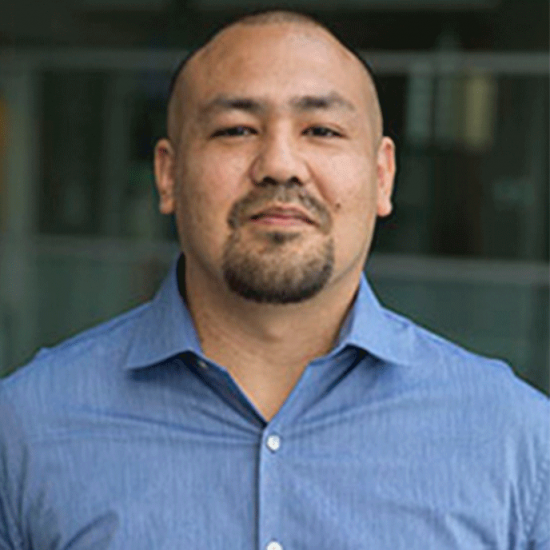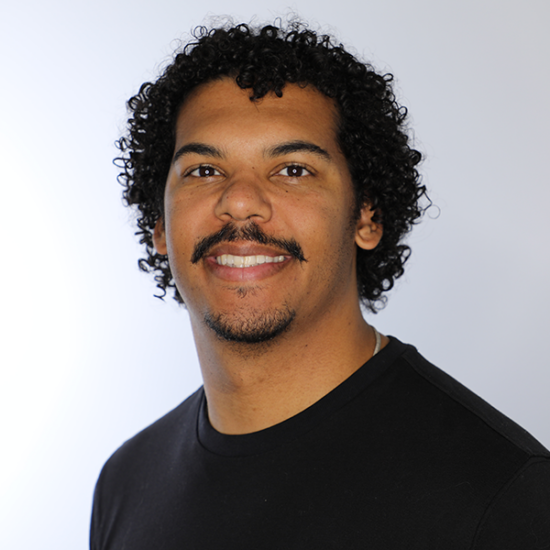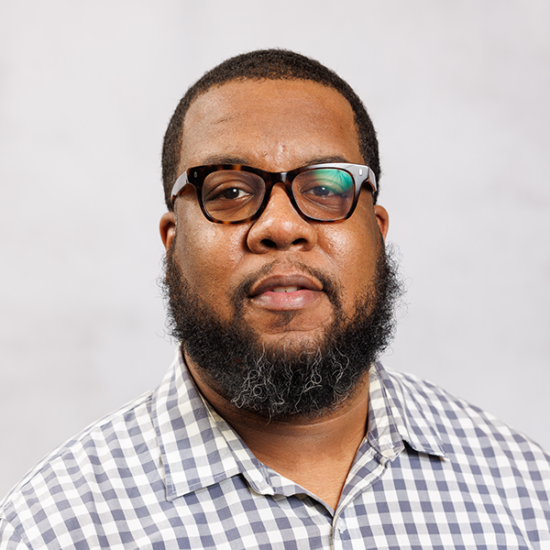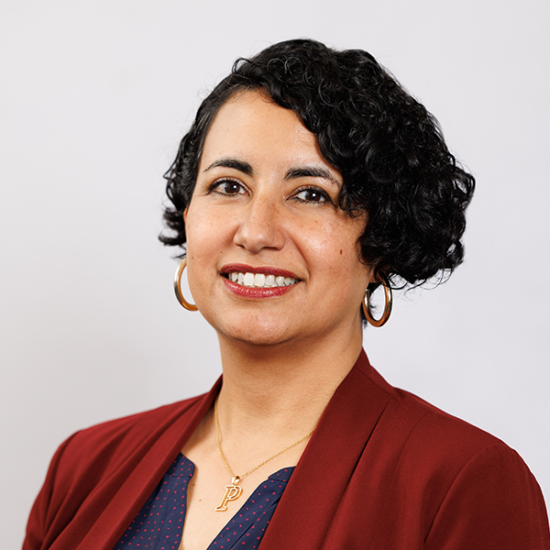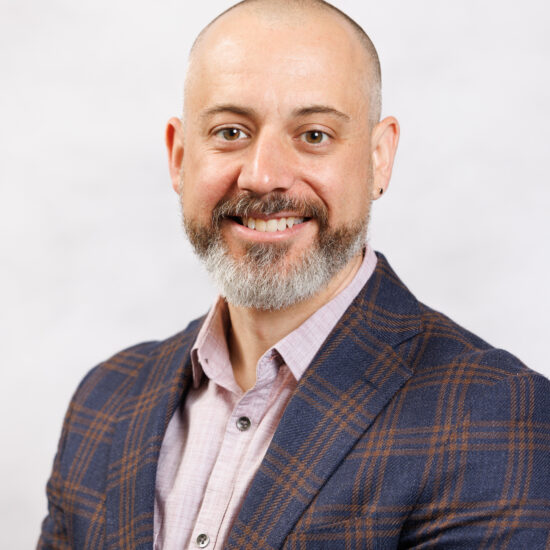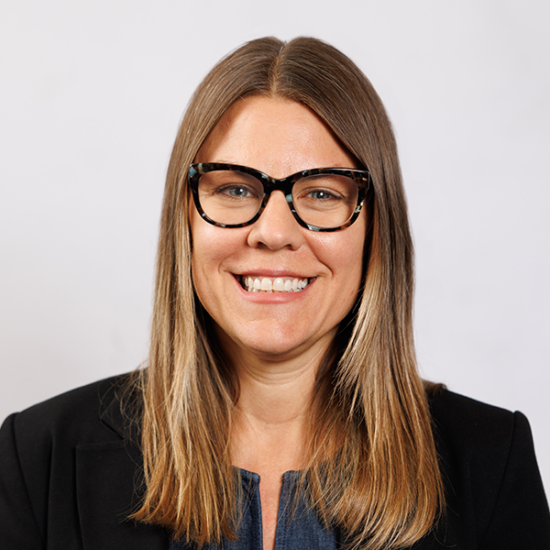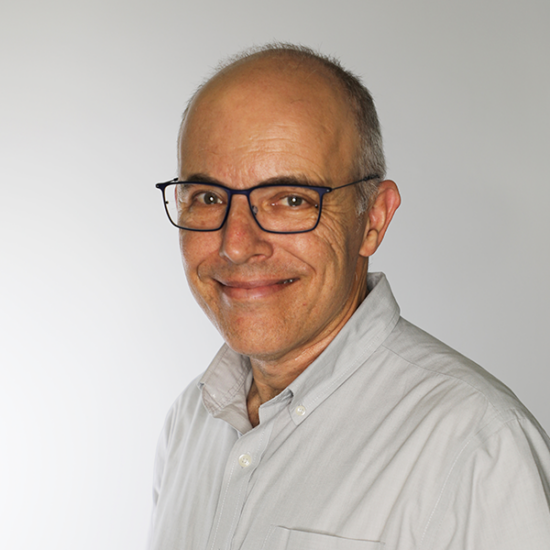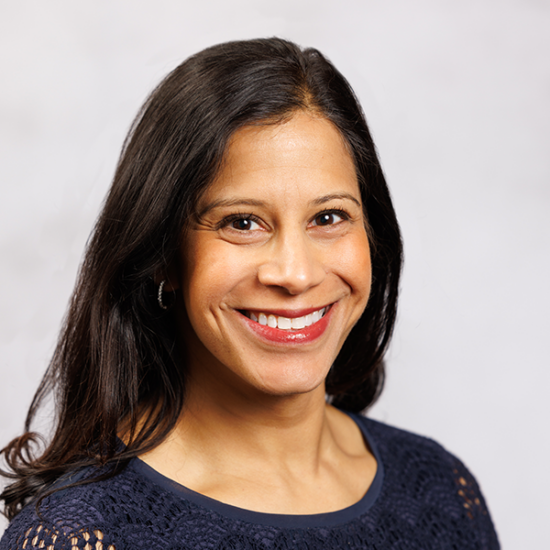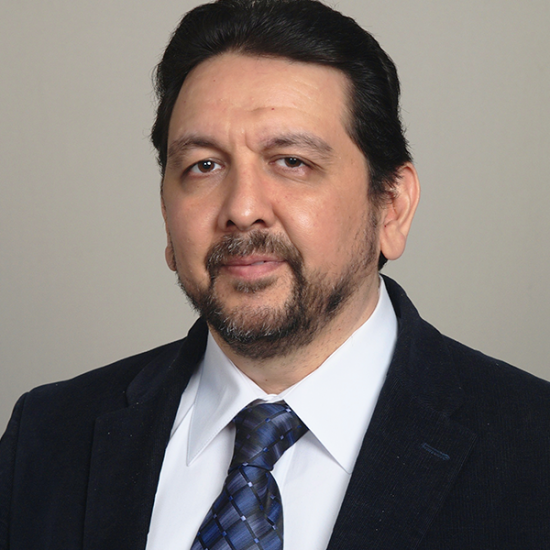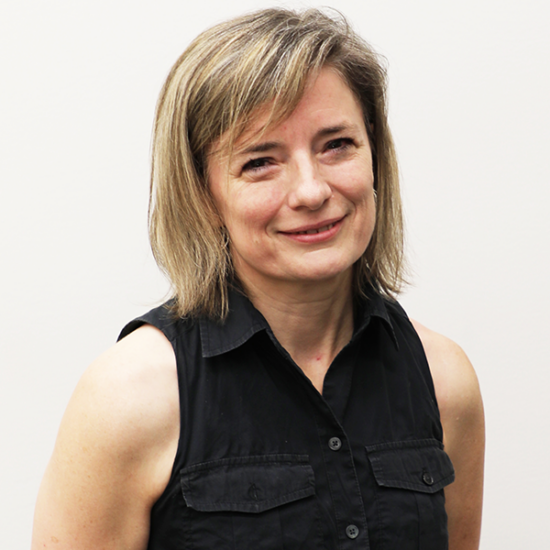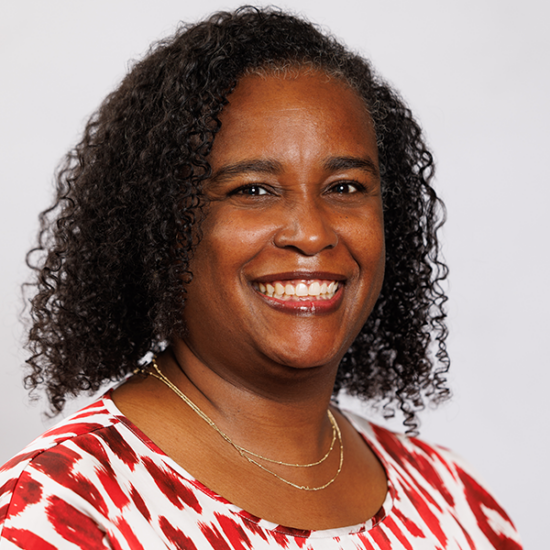The PhD in Critical Pedagogies and Urban Teacher Education (formerly Curriculum Studies) focuses on the importance of critical theory in the interest of emancipation.
Critical pedagogies as a core principle to drive research
Engaging in paradigms of critical praxis for curriculum inquiry includes research, practice, and speculation that promote diversity and pluralism in both in-school and out-of-school settings and contexts. The critical pedagogy strand of this PhD program focuses more on large-scale social and ideological critique and revision, while the urban teacher education strand serves the end of insight and understanding in situationally specific settings and contexts.
Critical praxis asks about origins of inequities in a variety of settings and what can be done about them. The depth and expanse of this doctoral program is characterized by queries such as: How is knowledge and information reproduced in schools, workplaces, and other settings? Whose interests are served by outlooks and skills fostered in these settings? When served, do these interests move more in the direction of emancipation, equity, and justice, or do they move in the opposite direction?
The program has an application deadline of December 1, 2023 for the 2024 fall class.
Critical pedagogies as a core principle to drive research
After years of research, local and national discussions, and external reviews by leading faculty in the field, the PhD Curriculum Studies (CS) program faculty have reinvigorated Curriculum Studies concentration by focusing on and strengthening its two key tenets: Critical Pedagogy, and Urban Teacher Education. This new name reflects the importance of critical pedagogies as a core principle driving research.
Degree Requirements
Critical Pedagogies & Urban Teacher Education (CPUTE) Faculty
Curriculum Studies (CS) Faculty
Eric (Rico) Gutstein
Phone:
Email:
Danny Bernard Martin
Phone:
Email:
Dr. P. Zitlali Morales
Phone:
Email:
Pauline Lipman
Phone:
Email:
Nathan Phillips
Phone:
Email:
Josh Radinsky
Phone:
Email:
Aria Razfar
Phone:
Email:
Steve Tozer
Email:
Maria Varelas
Phone:
Email:
Torica Webb
Phone:
Email:
Rebecca Woodard
Phone:
Email:
Frequently Asked Questions
Is this a new program? Why did the name change?
The Curriculum Studies program has evolved into Critical Pedagogies and Urban Teacher Education. This new name reflects the importance of critical pedagogies as a core principle driving research. It includes scholarship, research, and action akin to the transformational nature of teaching and learning that supports student agency in addressing social inequities and injustices. Research, scholarship, and action invested in the emancipatory nature of education have the potential to transform lives by helping forge paths toward equity and empowerment. This is especially relevant for individuals interested in the work of teaching against oppression and for liberation; and against dehumanization and for individual voice and perspective.
When does the College of Education begin accepting applications for the PhD Critical Pedagogies and Urban Teacher Education program?
Applications to begin in Fall 2024 open on August 1, 2023.
What is happening to students who are currently accepted or enrolled in the PhD Curriculum Studies program?
Students already admitted to the PhD Curriculum Studies program for Fall 2021 and earlier still have the right to graduate with the old program requirements and name. Students applying to the program after August 2021 (and formally beginning the program in Fall, 2022) will belong to the Critical Pedagogies and Urban Teacher Education program.
Is this an on-line program?
Specific courses may utilize synchronous and asynchronous instruction. The overall design of the program remains, however, on-site for various courses/activities.
Is the focus of this program centered on a certain level of schooling, e.g., elementary, secondary, higher education, preschool?
This PhD program has a long history of exploring curriculum as the whole of lived experience, the gestalt of all dimensions of life. Its core commitment remains: to explore the transformational nature of teaching and learning in all its manifestations and contexts. This includes: traditional in-school experiences (K – 12 and beyond), after school programs, fine arts programs, museum education, as well as outside of school realms of education, as well. The program embraces large cultural and social questions that pertain to substantive and methodological dimensions of learning and teaching in many different institutions and non-institutionalized realms of life. We advocate study of curricula that occur in and outside of formal educational institutions.
Does this not necessitate interdisciplinary study?
Most certainly it does. As noted above, this program understands curriculum as lived experiences through life journeys. This may include inquiries in history, anthropology, sociology, economics, political science, geography, philosophy, psychology, language, literature, art, music and a range of natural sciences, as well as other interdisciplinary studies such as Black studies, women’s studies and many other professional studies, such as medicine, business, social work, public health, architecture and engineering.
Since the PhD is a research degree, what research orientations are acceptable?
Given the interdisciplinary character of the degree, research orientations should be selected that illuminate questions, problems or phenomena that one wants to investigate. Thus, one might do research, more broadly inquiry, that draws upon philosophical analysis or speculation, historiography, ethnography, biography, autobiography, literary criticism, literary portrayal, narrative inquiry, phenomenological hermeneutics, postmodern interpretation, critical theory or critical race theory, queer theory, aesthetic inquiries, scientific comparative studies, surveys and more.
May one focus on a specialized area of study within the program?
Yes. Students choose to focus on critical pedagogies, urban teacher education, or health professions education. Essentially, students collaborate with faculty to fashion a program within these areas most suited to their experiences, interests, and aspirations. Within these three focus areas, students may delve deeply into a variety of areas including (but not limited to) school reform, social justice education, critical cultural studies, and curriculum development. As students learn more, it is expected that they continuously reconstruct their line of work. Faculty members and advisers help facilitate this process as part of the overall educational process.
What does someone do with a PhD in Critical Pedagogies and Urban Teacher Education?
About 70% of our graduates have gone into college and university faculty and research positions; others assume instructional leadership roles in elementary schools, high schools, or community colleges. Other opportunities include; educational agencies, publishing, community organizations, professional associations, or independent scholarship.
What can you tell about the faculty?
Our faculty members are among the top national leaders in curriculum studies (theory, history, context, and development), urban education, school reform, math education, bilingual education, critical theory and critical race theory, literacy, science education, teacher education, and relationships between curriculum and teaching. A central focus of such studies is often on matters of social justice.
How long is the program?
This program requires a minimum of 96 semester hours beyond the baccalaureate degree and a minimum of 64 semester hours beyond the master’s degree. Specific program/degree requirements (i.e., coursework, preliminary exams, dissertation research and defense, committee composition, and more) are identified and described in the Advising Guides. Note, please select the appropriate Advising Guide on the program’s Degree Requirements page.
Minimum?
Yes, this is the least number of hours required to complete the degree. We need to say it this way, because it is necessary for each student to develop the intellectual and research capacity that enables them to do the research needed for the dissertation. Frequently, this necessitates taking more course work, e.g., courses, independent study, dissertation hours.
Are some of these hours for dissertation work?
Yes. The full description of course and dissertation hours is located in the Advising Guides listed on the Degree Requirements page.
What is the PhD Research Project?
This is an opportunity to take a leading role with a faculty member (or simply under the guidance of a faculty member) in a scholarly endeavor. This might be related to a grant; it might be preparation of a paper or presentation for a scholarly conference or a manuscript to submit for publication. One purpose of the Research Project is to gain experience of immersion in the research process, and another purpose resides in the fact that conference presentations and publications on one’s curriculum vitae (scholarly resume of life’s work to date) markedly enhances chances of success in the job market.
How does one get involved in activities of the scholarly community?
Your advisor will help. So will other faculty members, if you strive to get to know them. If you attend conferences, they will literally introduce you to authors on your bookshelf from other universities as well as from UIC. You should check out websites for AERA, AESA, JCP, Bergamo, AAACS, PDK, ASCD, AATC, IAACS, WCCI, as well as more specialized organizations for those interested in different subject matters. Get to know these acronyms, membership benefits, publications, and conference. Instead of spelling out these organizations and giving the web sites, we challenge you to discover what membership entails, learn about their conferences, and read their journals.
Do you have a few hints about journals to explore?
Sure. Some are affiliated with associations: Educational Researcher, Review of Educational Research, American Educational Research Journal, Review of Research in Education – all of AERA; Educational Studies and Educational Foundations – both of AESA; Journal of Curriculum and Supervision and Educational Leadership of ASCD; Kappan of PDK; Journal of Curriculum and Pedagogy of JCP; Journal of Curriculum Theorizing of the Bergamo Conference and the Corporation for Curriculum Research; on-line publishing opportunities of AAACS and IAACS; The Forum of WCCI; Curriculum and Teaching Dialogue of AATC. There are more independent journals, such as Curriculum Inquiry, Journal of Curriculum Studies, Harvard Educational Review, Teachers College Record, Educational Theory, Educational Horizons, Educational Forum, Journal of Thought and many subject matter-specific journals.
What is the College of Education (COE) written exam?
For the College of Education written exam, pre-dissertation candidates respond to a set of questions that integrate and apply knowledge and understandings gained from coursework, research projects, and independent readings. Specific information and details are listed and described in the Advising Guides on the Degree Requirements page.
What are the Preliminary Exams?
- Written Dissertation Proposal
- Oral Dissertation Proposal Defense
The purpose of the preliminary examination is to determine your readiness to undertake dissertation research. The preliminary examination has two parts—a written portion and an oral portion that focus primarily on your dissertation proposal. The oral portion of the exam should be taken when you have completed your dissertation proposal. You must take and pass the oral portion of the exam before you begin dissertation research. Specific information on the composition of your preliminary exam committee is listed and described in the Advising Guides on the Degree Requirements page.
Who is the advisor and how does one get one?
When admitted to the program, a student is assigned an advisor, based upon review of the application materials, including any indication by the applicant about the faculty members whose work they find interesting. The assignment is not final. It is the best we can do at the time of admission. As the student studies and interacts with faculty members, another adviser may make sense, at which time a form to change advisers may be completed. Preliminary Exam and Dissertation Committee chairs or advisors are often not those initially assigned.
It is well known that success in Ph.D. programs is connected to the quality of advising received (Adams, 1992; Heinrich, 1995; Johnson and Huwe, 2003; Tuttle, 2000; Zhao et. al., 2005). This success is largely dependent on the development of the advisor-advisee relationship. It is not an exaggeration to say that the single most important factor in the successful and timely completion of a Ph.D. program is an open and productive relationship with your advisor. Your relationship with your advisor in your Ph.D. Program is likely to be qualitatively different from the advising you may have had in your undergraduate or Master’s program. Of course, information, support and advice can be provided by many people, including staff in the College of Education Student Services Office, the Graduate College, your course instructors, and your classmates. However, there is no substitute for the mentoring that a Ph.D. advisor can provide. This mentoring can take many forms, including helping you to complete necessary paperwork, select courses, and develop conceptual frameworks for your research.
Further information is posted in the Doctoral Handbook Advising Covenant.
What is a dissertation?
It is an original scholarly contribution to knowledge of the field of inquiry. There are many varieties of dissertations and they need not all fit one stencil. Your advisor will help you conceptualize and coordinate the dissertation.
Upon completion of the program, what will my diploma read?
Doctor of Philosophy in Education
How do I find what is offered by the College of Education?
Check out our Courses page for a listing of courses offered this semester, as well as listings of all courses currently offered by the College of Education.
What if I have some graduate work at previous institutions?
If the graduate work has not been used for a degree, you may petition to have it count toward your program requirements. The Graduate College has a maximum number of credit hours you can transfer to UIC from a different institution or from U of I. These credit hours must be approved at the program and departmental levels as well as by Graduate College. It is important to gain a great deal of the course work at UIC, because you are working toward a UIC PhD.
Are tuition waivers or other funding plentiful?
Not as plentiful as we would like, but possible. The Department of Curriculum and Instruction has a limited number of tuition waivers each semester; one applies through the Office of Student Services in the College of Education. The university has a number of campus-wide competitions for fellowships and scholarships. Faculty members who receive government or foundation grants often have research assistantships. Sometimes, teaching assistantships are available to those who are particularly well-qualified. Be sure to check your UIC email to receive updates. In addition, you are encouraged to search the Web for specialized funding for doctoral studies or dissertation research.
Under what rubrics may I take independent study work?
You may take independent study (CI 596 or 596 in other Departments) or you may select CI 592 (Apprenticeship in Teaching) or CI 539 (Internship in Curriculum and Instruction). If course, the CI 593 Research Project and the CI 599 Thesis Research are also forms of independent work. These can be done independently with your adviser or another available faculty member whose expertise fits your inquiry of choice.
How many hours should I take per semester?
It depends on your work load. Those who are employed full time usually take one or two courses. Sometimes it is helpful to couple courses and independent work to fit your schedule.
Is there a residence requirement? Can I take time off while I pursue the degree?
There is no longer a formal one. However, you should be enrolled each semester after accepted. While it is possible to take one semester off without penalty, you many not take consecutive semesters off without written approval Graduate College permission. After you complete the preliminary exam, you must be continuously registered in Fall and Spring Semesters until your completed dissertation is approved. Continuous registration does not mean that courses must be taken in summer sessions. You may, of course, take courses in summer sessions if you wish. Moreover, it is advisable to try to have a period of time for full-time doctoral pursuits. Some think it is best to do this during the dissertation while others prefer doing so during course work periods.
Are the same courses offered every semester?
No. Research Core courses are offered frequently, but other courses are not. Key electives are offered either annually or biennially. Regularly communicating with your program advisor is critical for course planning.
What level of courses should I take?
They should be 500-level courses, or at least 400 level courses.
Are classes taught on Saturday?
No. Courses are offered one night a week, Monday through Thursday, 5 p.m. to 8 p.m.
Do you offer summer sessions?
We now offer two different summer sessions. This provides opportunity to do additional course work.
What are Annual Reviews?
You are required to submit a formal progress report each year. These reports provide you with an opportunity to reflect on whether you are meeting your goals while allowing faculty to assess whether adequate progress is being made. Program faculty review and discuss these reports and provide written feedback to you about whether you are meeting expectations. Recommendations for ways to enhance or sustain your progress are a likely result of this process. If you are not making adequate progress, you may be placed on probation and given directive feedback on how to proceed.
How do I apply?
Students apply through the UIC Graduate Admissions application. Some of the bases for admission decisions that are taken seriously include:
- Background of experience (Take time to convey it.)
- Undergraduate and graduate GPA (We look at disciplinary majors/minors, places of study, persons with whom one studied, and indicators of scholarly capacity.)
- Letters of Recommendation (Be sure to select writers who know about doctoral work; generally, scholars (especially noted scholars) in the field are most appropriate
- Statement of goals (Take time with this. It is examined for expression of substantive ideas and for writing ability. From this and other sources, we try to determine your commitment and capacity to make original scholarly contributions. We also want to glean a sense of your dedication.
- Other indicators, such as publications, presentations at scholarly conferences, research interest, dedication to certain issues, involvement in scholarly endeavors, experience that speaks to dedication, and more.
In the final analysis, we have more highly qualified applicants than we can accept, so we accept those who we decide we can help to become outstanding scholars and educators. Much depends on scholarly judgment of our faculty. At the PhD level it is an honor to be accepted to admission; it is not a requirement necessitated by meeting certain minimal standards.
The PhD in Critical Pedagogies & Urban Teacher Education will begin accepting applications for Fall 2024 beginning August 1, 2023 with a deadline of December 1, 2023.
If you have questions about the program, please reach out to the program coordinator Edward Podsiadlik (epodsi1@uic.edu).
Where else can I look to gather further information?
The UIC Graduate College website contains a lot of important information for UIC PhD students:
